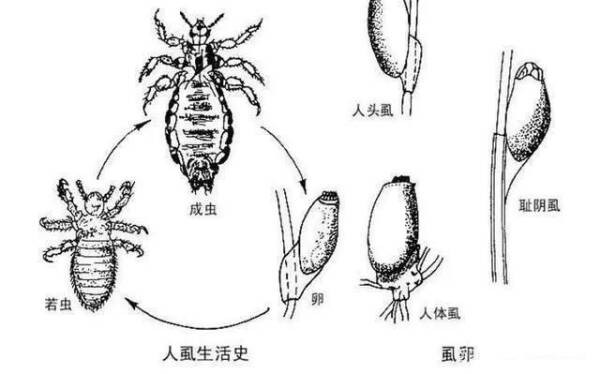Lice adults and nymphs feed on the host's body throughout their lives. The hosts are mainly terrestrial mammals, with a few marine mammals, and humans are also often parasitized. Lice are not only harmful by sucking blood, but also make the host itchy and restless, and can transmit many important human and animal diseases. Relapsing fever is a worldwide disease spread by lice, and the causative agent of this disease is a spirochete. The lifespan of a louse is about six weeks, and each female louse lays about ten eggs per day, which adhere firmly to human hair or clothing. The lice hatch in about eight days and immediately bite and suck blood. After about two to three weeks, they will grow into adults through three molts.

Lice live a parasitic life throughout their lives. People can spread it to each other through contact. The transmission of relapsing fever is that after it bites someone, the bitten area will be very itchy. When the person scratches the itch hard, the lice will be squeezed out. The pathogens in its body fluids will be brought into the bite wound along with the scratching, and people will get sick. The best way to prevent and treat relapsing fever is to eliminate lice; if we bathe frequently with hot water and soap, change clothes frequently, and pay attention to environmental hygiene, lice will not grow on our bodies. If you already have lice, you can use medicine to kill them. Clothes with lice can be boiled in boiling water. If there are lice in the hair, the hair should be shaved off.
animal tags:
We created this article in conjunction with AI technology, then made sure it was fact-checked and edited by a Animals Top editor.